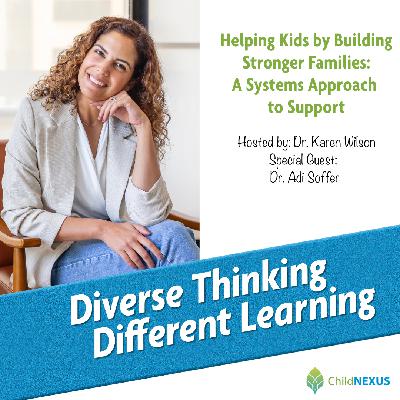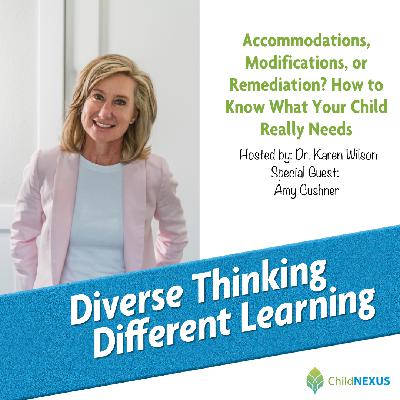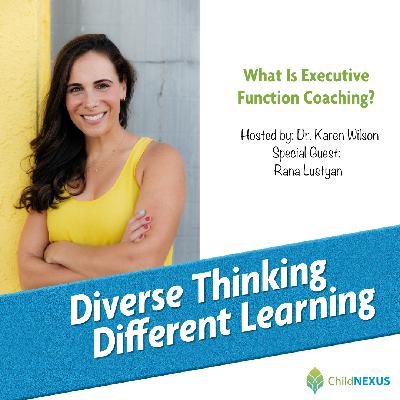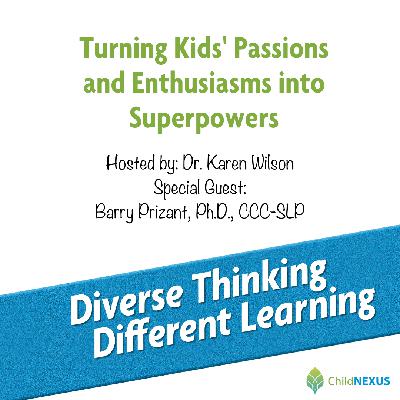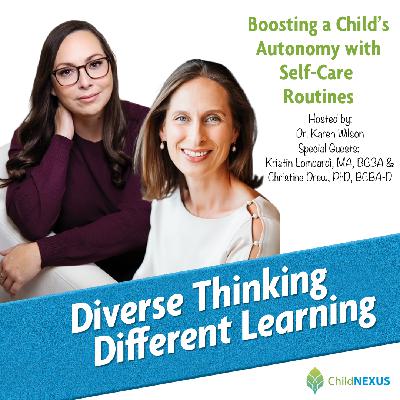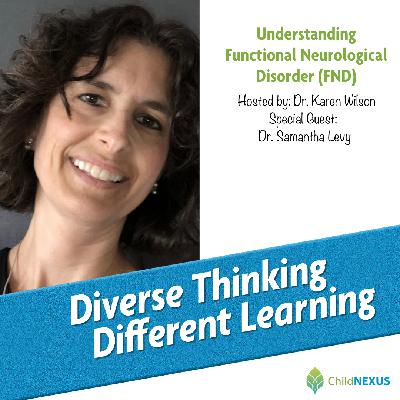Ep. 247: Helping Kids by Building Stronger Families: A Systems Approach to Support with Dr. Adi Soffer
Description
We happily welcome Dr. Adi Soffer to Diverse Thinking Different Learning this week! Adi Soffer, PsyD is a licensed psychologist who works with children, teens, and families, and she combines family structure therapy with evidence-based practices to help families strengthen communication, establish healthy boundaries, and deepen emotional connections. Passionate about guiding parents and children through challenges such as anxiety, behavioral issues, and major life changes, Dr. Soffer offers care via her private practice, Kesher Psychological Services. She sees clients in Los Angeles and provides virtual sessions throughout California and Florida.
When a child is struggling with learning, behavioral, or emotional challenges, the focus is often on finding the right therapy for the child. However, as Dr. Adi Soffer explains, this approach may be missing an important piece - the family system. She firmly believes that families function as interconnected systems, and when one member is struggling, the whole system feels the impact. By shifting the focus from fixing the child to strengthening the entire family system, families can reduce stress, improve relationships, and lead to better outcomes for kids and teens.
Dr. Soffer outlines her approach to family systems therapy, bringing the entire family into the first session, not just "the identified patient." Instead of discussing the child's problems, she asks questions about the family's dynamics, traditions, and what they would like to change. This allows her to observe the family's communication patterns, boundaries, and power dynamics. She also highlights the importance of understanding the family's structure and communication style, as these factors can deeply impact a child's emotional well-being and behavior.
Dr. Soffer explains how poor communication, conflict avoidance, or unclear expectations can contribute to ongoing stress at home, which in turn affects the child. By working with the family, however, she helps them develop healthier communication and set clear expectations and boundaries. This, in turn, can reduce the child's anxiety and stress, as they no longer have to worry about the unpredictability of their home environment.
We also explore how the family systems approach shifts when working with teenagers, who are often pushing for more independence, with Dr. Soffer discussing the importance of balancing the teen's need for autonomy with the family's need for involvement and how this can create an environment of empathy and connection within the family. Overall, we highlight the powerful impact that a family systems approach can have on supporting children and teens struggling with various challenges. By addressing the entire family system, therapists can create lasting change and help the whole family thrive.
Show Notes:
[3:03 ] - Hear how Dr. Adi Soffer begins therapy by including the entire family system rather than isolating the child.
[6:43 ] - Dr. Soffer observes family dynamics via structured activities, games, and collaborative drawing.
[9:32 ] - Family therapy examines communication, boundaries, and where each member fits in the relational hierarchy.
[12:21 ] - Dr. Soffer makes the case that clear routines and consistent boundaries reduce chaos and help children feel secure and less anxious.
[14:29 ] - Parents often unintentionally reinforce anxiety by teaching children that the world is frightening.
[16:27 ] - Therapy highlights how children's struggles often reflect parental triggers and emotional challenges.
[19:29 ] - Removing the "identified patient" label eases a child's burden and reduces family pressure.
[20:13 ] - Dr. Soffer argues that constant focus on negative behavior teaches children to internalize damaging beliefs about themselves.
[22:02 ] - Teens need both autonomy and clear parental boundaries to be successfully independent.
[25:28 ] - Families begin to align as a team when therapy highlights shared responsibility and individual identity.
[27:39 ] - Dr. Soffer explains how emotional Jenga can help parents model vulnerability and normalize healthy emotional expression for children.
[30:27 ] - Hear how a teen realized that his parents' feelings mattered too after returning from a month away.
[32:34 ] - Dr. Soffer argues that parents build resilience by balancing support with boundaries and not over-accommodating their kids.
[35:09 ] - A parent's real role is preparing children to face failure, rejection, and life's challenges.
[36:18 ] - It's important for children to face discomfort and uncertainty instead of being shielded by anxious parents.
[39:18 ] - Dr. Soffer asserts that focusing on family strengths can transform household dynamics and improve the overall atmosphere.
[40:38 ] - How can Dr. Soffer be reached?
Links and Related Resources:
-
Episode 167: From Surviving to Thriving: A Mom's Hierarchy of Needs and Well-Being with Leslie Forde
Connect with Us:
-
Email Dr. Wilson: drkiwilson@childnexus.com
Connect with Adi Soffer, PsyD:

